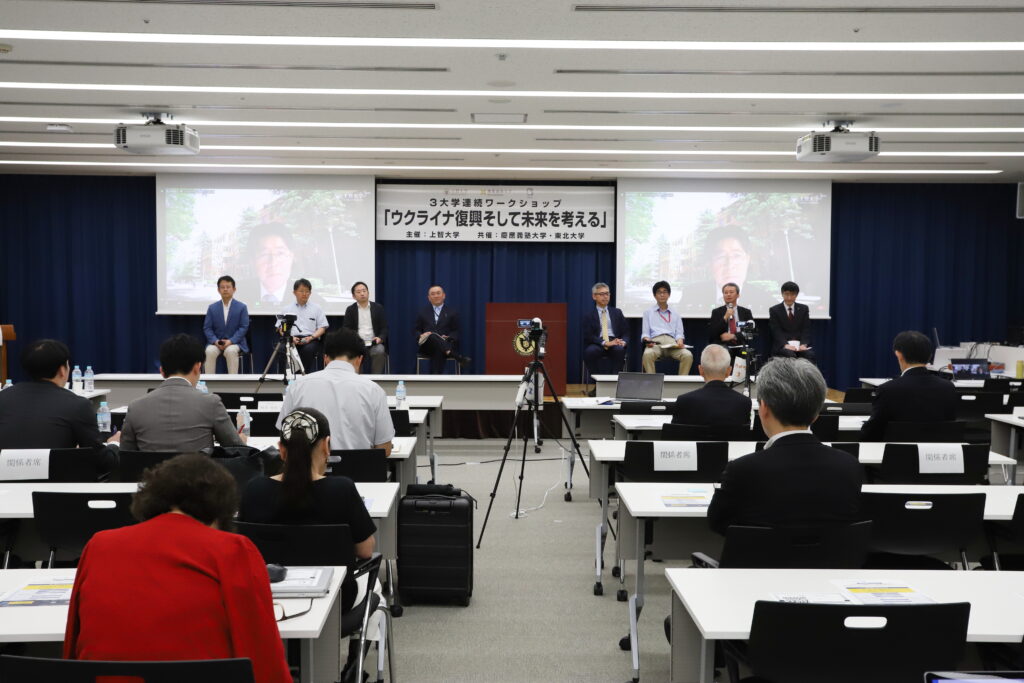
A joint workshop entitled “Ukraine’s Recovery and Future”, the first in a series of workshops organized by Sophia University, Keio University, and Tohoku University, was held at Sophia University Yotsuya Campus on June 30. This workshop reviewed the latest activities for the ongoing recovery and future reconstruction of Ukraine, including the role of Japan and ways of collaboration among private, public and academic sectors, in this endeavor. The representatives of the Japanese government and aid agency, the World Bank, the European Bank for Reconstruction and Development (EBRD), the business sector, and NGOs participated in the workshop, along with the professors of three universities.
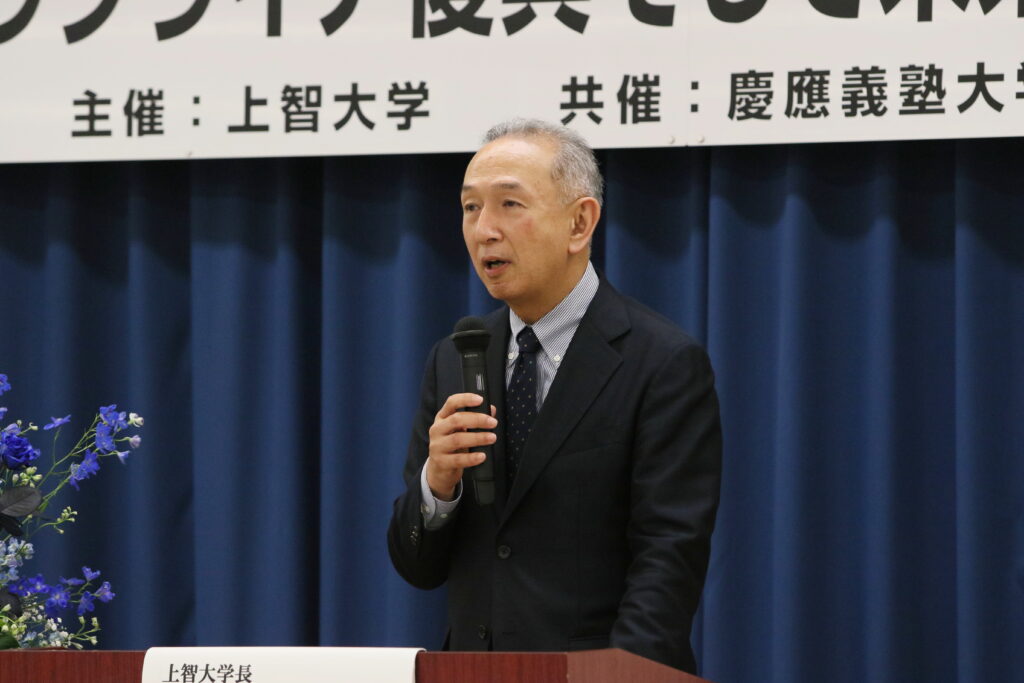
The workshop was moderated by Professor Tetsuo Morishita, Vice President for Global Academic Affairs at Sophia University. Professor Yoshiaki Terumichi, the President of Sophia University, said in his opening remarks: “We continue to make efforts toward a society where no one is left behind because we share with the rest of the world a common understanding that human dignity is the foundation of our society. As countries work toward a postwar future, we would like to discuss together how we can contribute to this effort,” he concluded, expressing his best wishes for the workshop.
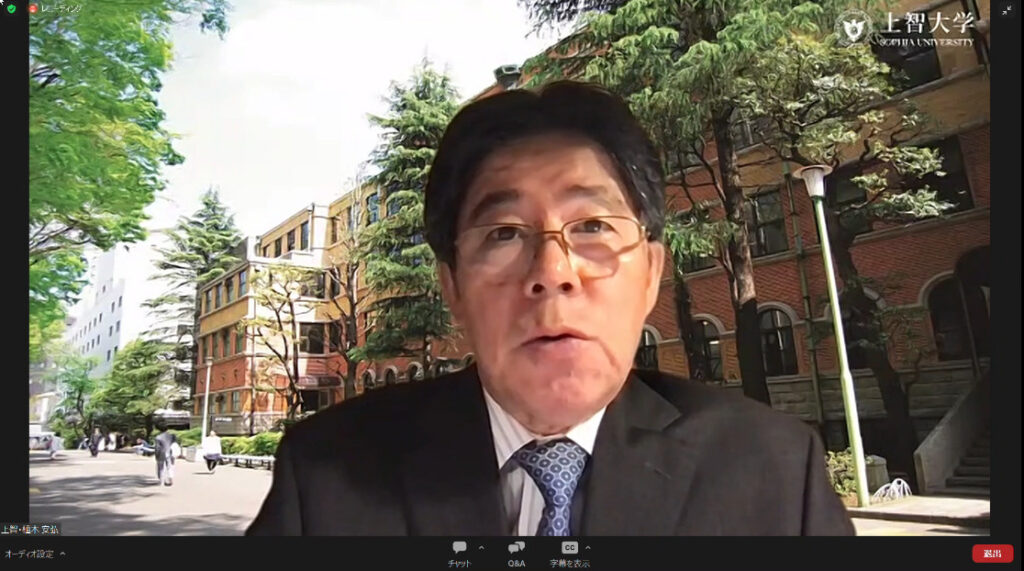
Opening the substantive session, Professor Yasuhiro Ueki of the Graduate School of Global Studies, Director of Sophia University Human Resources Center for International Cooperation (SHRIC) and a former UN Spokesperson, gave an online keynote speech from overseas. After reviewing the current assistance activities for recovery and reconstruction mainly from Western countries, he discussed the possibilities of providing assistance from Japan based on three pillars: assistance during the ongoing war, assistance after a ceasefire or peace agreement is reached, and setting up a command structure for assistance within the Japanese government and building a national framework for support.
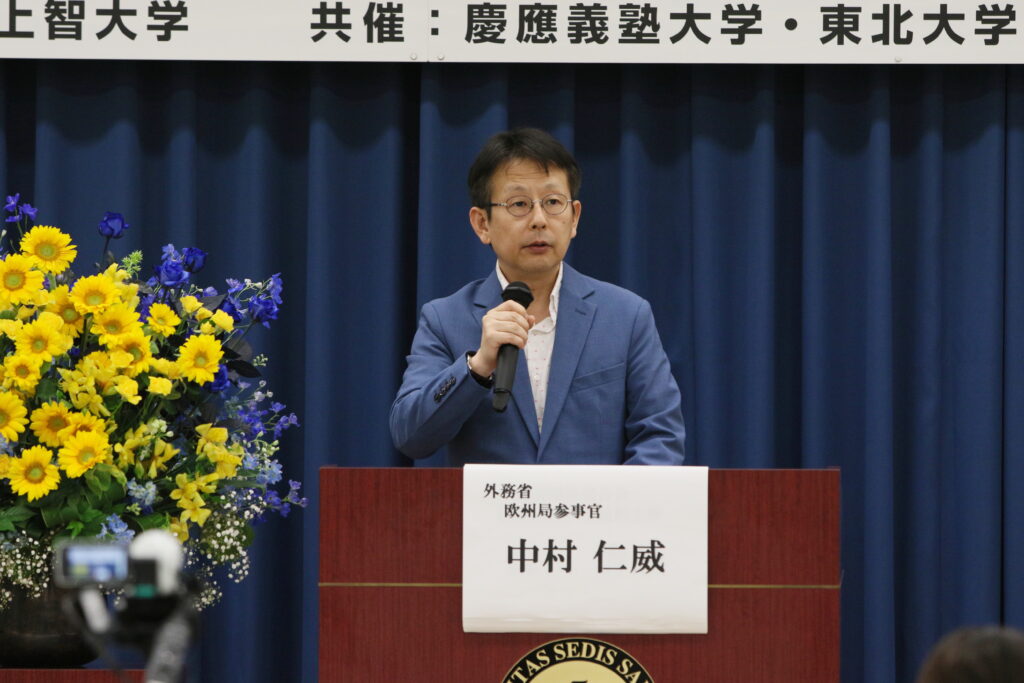
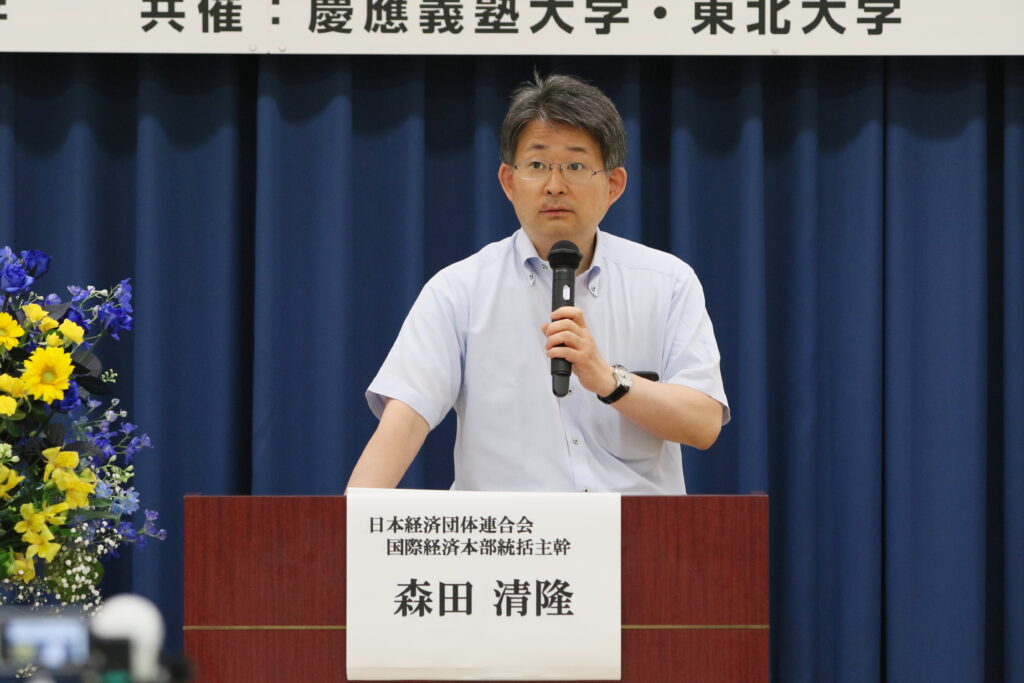
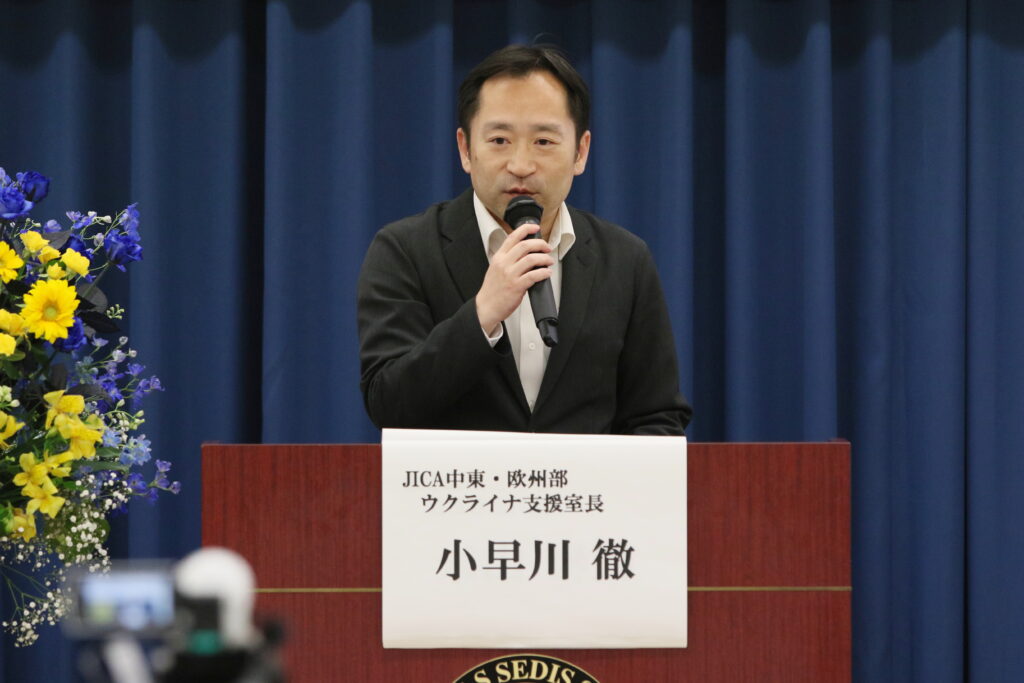
In the next session, “Considering Domestic and International Trends,” participants from both private and public sectors discussed initiatives for reconstruction and issues related to assistance for recovery process from their respective fields.
Mr. Kimitake Nakamura, Deputy Assistant Minister for European Affairs, Ministry of Foreign Affairs of Japan, emphasized that the invasion of Ukraine is a serious matter that threatens the international order. Drawing from the examples of human security-based support that characterizes Japan’s aid for developing countries, he stressed: “it is important to ensure a unified approach to Ukraine’s recovery and reconstruction, to express our clear intention of support and to demonstrate the determination of the international community in this endeavor.”
Mr. Kiyotaka Morita, Principal Administrator of the International Economy Division of Keidanren (Japan Business Federation), introduced the joint proposals made at the B7* Tokyo Summit and other support measures implemented by the business community. He also emphasized the active involvement of private sectors, including the establishment of a team to provide support for Ukraine.
Mr. Toru Kobayakawa, Director of JICA’s Middle East and Europe Division’s Support Office for Ukraine, presented their aid strategy, which focuses on the following four areas: 1) reconstruction of the infrastructure; 2) restoring people’s livelihoods and improving their living environment; 3) recovering agricultural production and revitalizing business industries; and 4) reinforcing democracy and governance. He also stressed the need for human resource development in each of these areas as one of the key pillars of the recovery process, and expressed hopes for academic institutions to assist in this area.
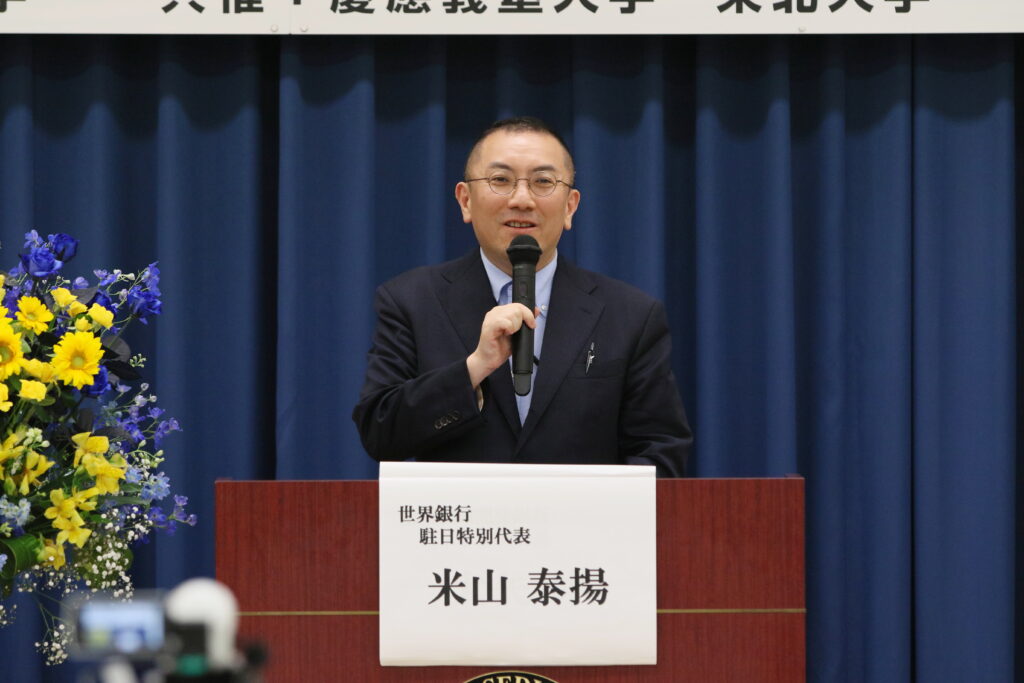
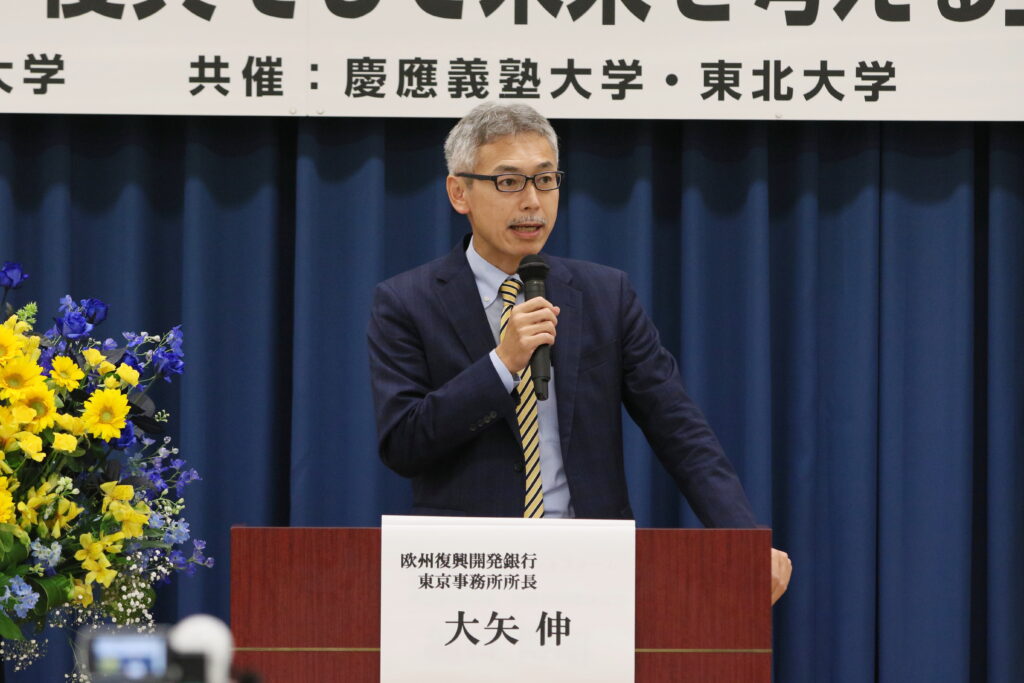
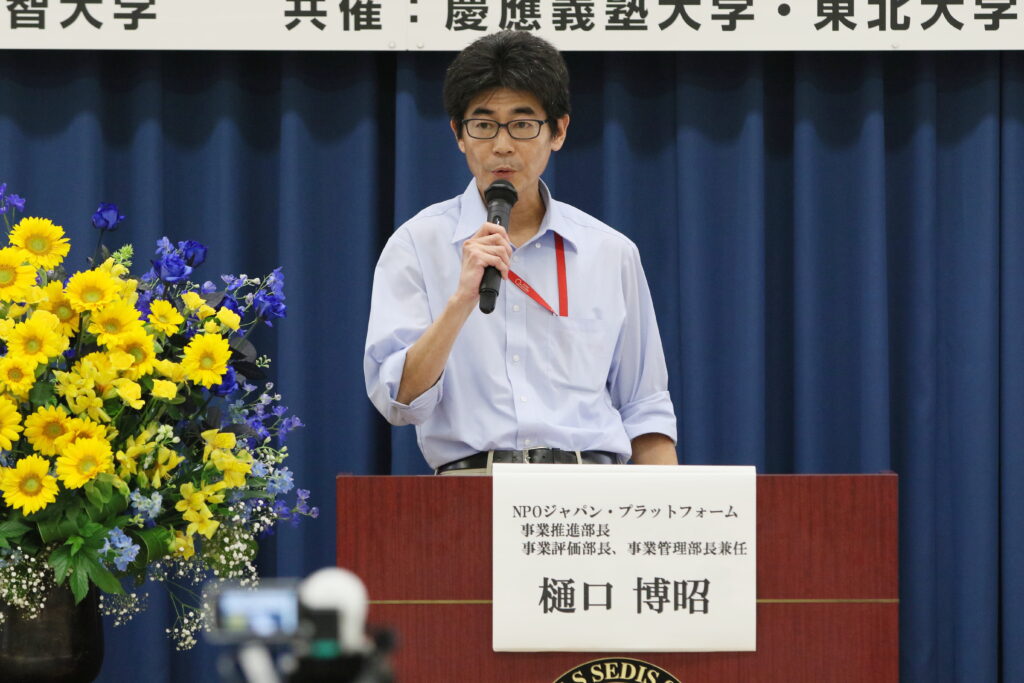
Mr. Yoneyama Yasuaki, World Bank Special Representative in Japan, pointed out that the active involvement of both the private sector and governments is essential to guarantee aid for Ukraine in dealing with for the damages from ever-expanding destruction. Drawing on the history of the World Bank, established for the purpose of postwar reconstruction, he expressed the significance of providing the necessary funds for recovery and reconstruction.
Mr. Shin Oya, Director and Head of the Tokyo Office for the European Bank for Reconstruction and Development, introduced financing measures with emphasis on energy, infrastructure, agriculture, trade, finance, and the private sector. He noted that the demand for funds is enormous and that the challenge for the future is how to secure the necessary funds.
Mr. Hiroaki Higuchi, Manager of Program Development Division, Monitoring and Evaluation Division, and Strategy and Programming Management Division of International NGO Japan Platform, elaborated on how Japanese NGOs are approaching support for Ukraine, outlining both the distinct aspects and challenges they face. He pointed out that many Japanese NGOs have relatively limited experience in delivering humanitarian aid in Ukraine and neighboring countries, making it harder for them to effectively address the mounting needs. Mr. Higuchi emphasized the necessity of stronger collaboration and coordination between the government, international organizations, and NGOs for navigating these challenges.
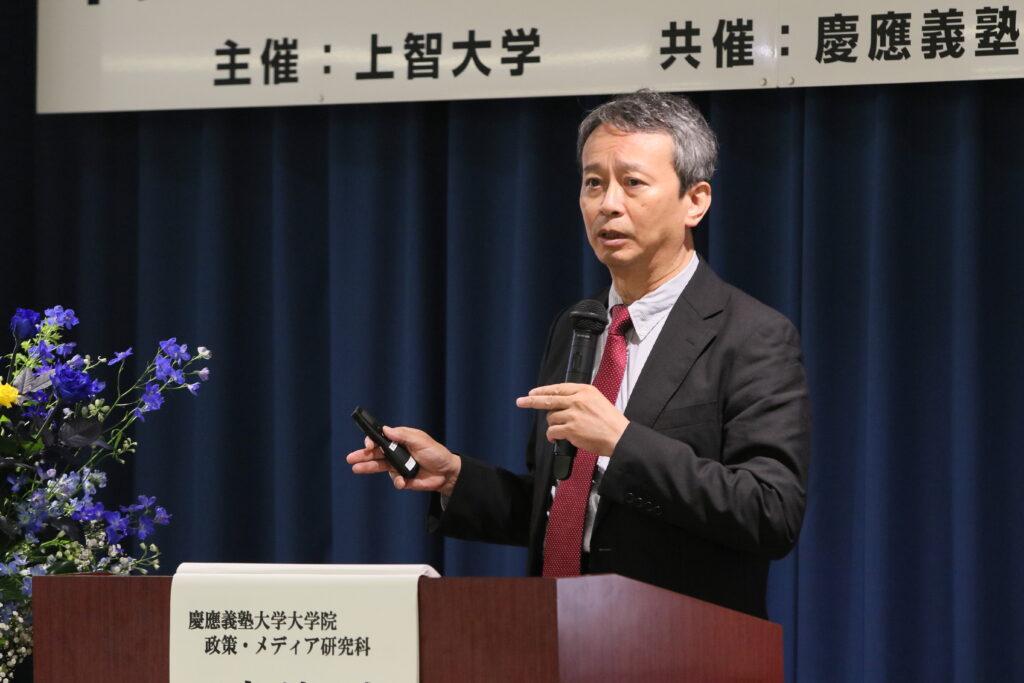
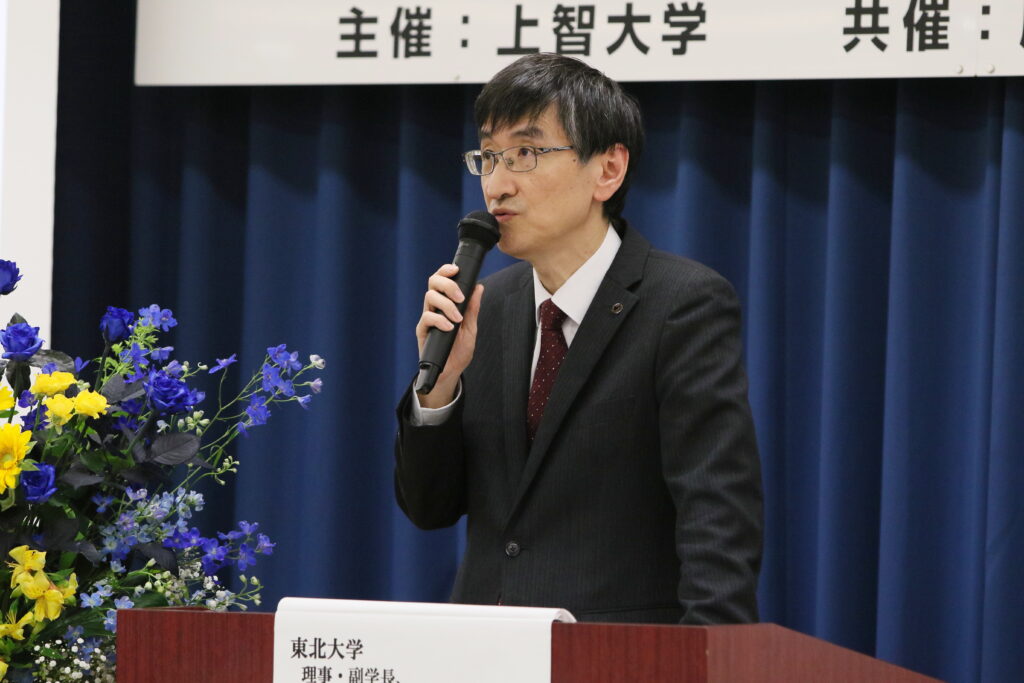
In the session “Considering the Role of Japan” that followed, Keio University and Tohoku University made presentations on how universities can support and contribute towards recovery and reconstruction of Ukraine.
Professor Koichiro Tanaka of the Graduate School of Media and Governance, Keio University, spoke about the role of universities in making policy proposals that reflect historical knowledge and in developing human resources, and emphasized the importance of considering the similarities and differences of the past peacebuilding efforts.
Professor Toshiya Ueki, Executive Vice President of Tohoku University and Director of the Center for International Law and Policy at Tohoku University, stated that, in light of the university’s location, which is in the area affected by the Great East Japan Earthquake, “it is important to consider how we, as a disaster affected country, can pass on to Ukraine the knowledge and experience on reconstruction in Japan.” He called for cross-disciplinary and interdisciplinary measures to be proposed.
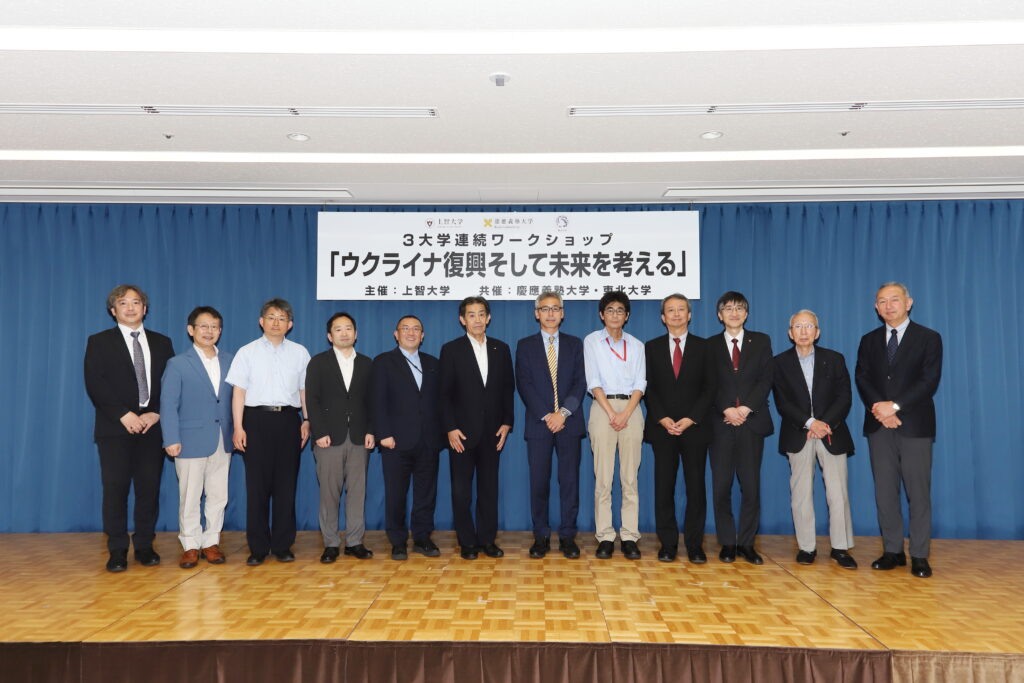
After the presentations by the experts, an active Q&A session took place with nearly 130 participants, including those who joined online. The workshop ended on a positive note with a comment by Mr. Ichiro Aisawa, a member of the House of Representatives, who attended the workshop, that Japan should play an important role in Ukraine’s recovery and reconstruction. He expressed his high expectations for the Japanese universities’ contributions in this regard.
The second workshop will be hosted by Tohoku University on September 8.
B7*:Business 7